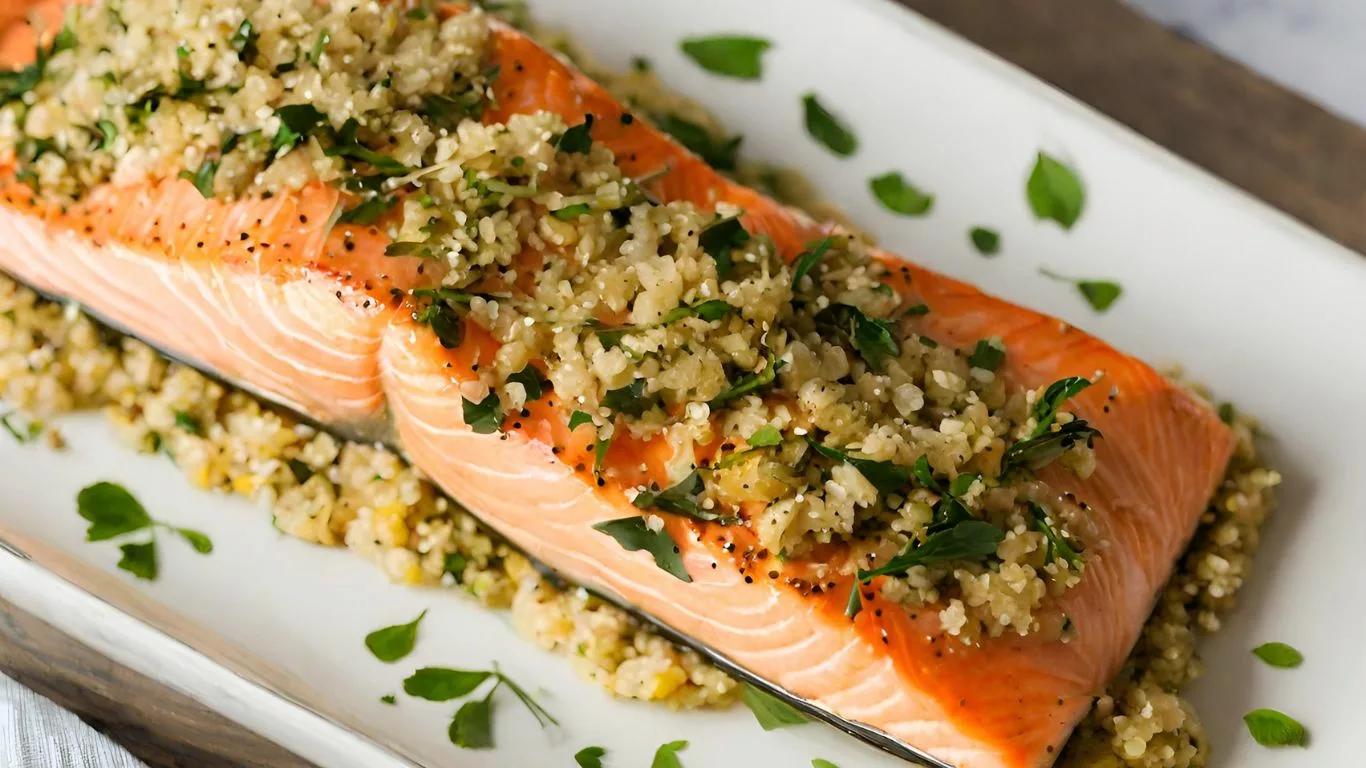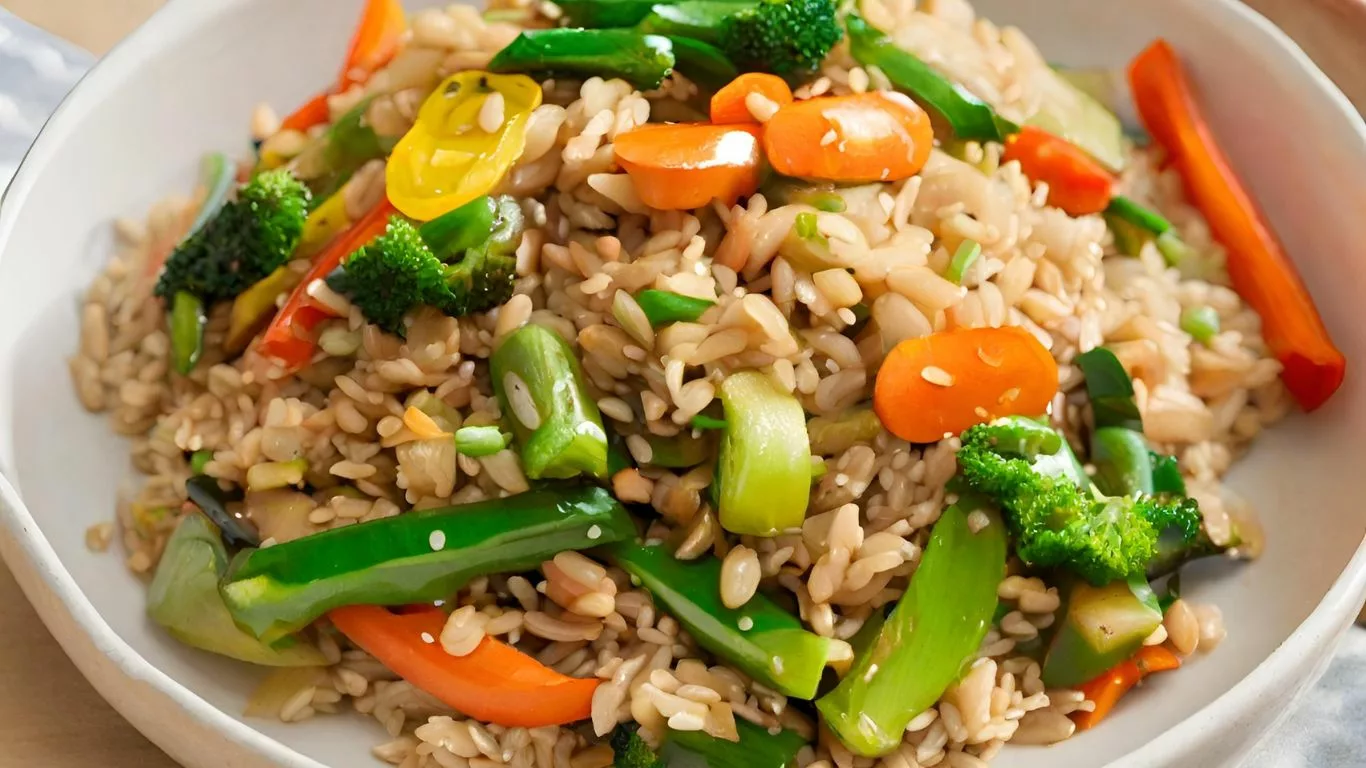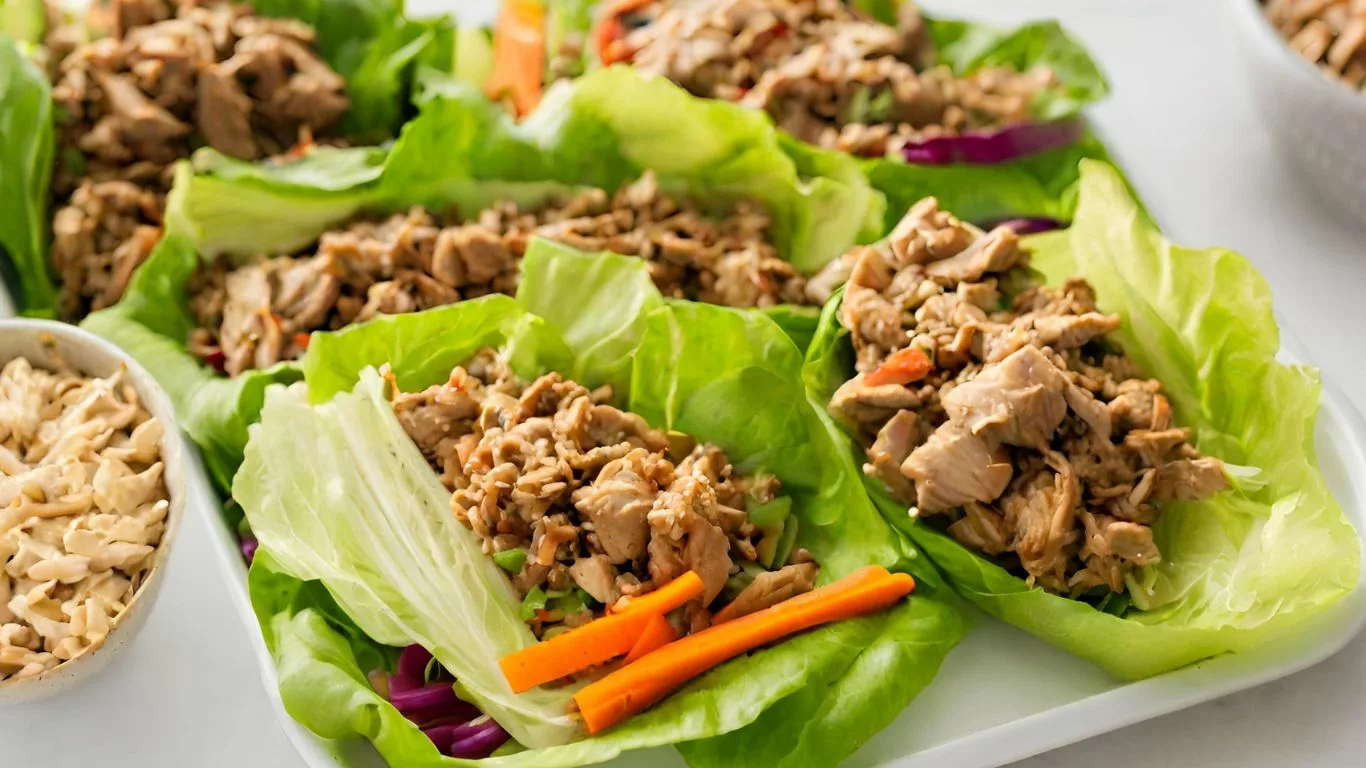Delectable GERD-Friendly Dinner Recipes – Savor the Flavor without the Discomfort
Explore delicious and soothing dinner recipes tailored for individuals with GERD. Discover flavorful dishes to enjoy while managing acid reflux effectively.
Living with GERD (Gastroesophageal Reflux Disease) doesn’t mean sacrificing flavor or satisfaction at the dinner table. With thoughtful ingredient choices and mindful preparation, you can create meals that are both delicious and gentle on the digestive system. In this guide, we’ll delve into a selection of GERD-friendly dinner recipes designed to help you savor your meals without discomfort.

1. Baked Salmon with Herbed Quinoa
Salmon is not only rich in omega-3 fatty acids but also a great protein choice for those with GERD. Pair it with fluffy herbed quinoa for a nourishing and satisfying meal.
Ingredients:
- Fresh salmon fillets
- Quinoa
- Fresh herbs (such as parsley, dill, and chives)
- Lemon juice
- Olive oil
- Salt and pepper
Instructions:
- Preheat oven to 375°F (190°C).
- Season salmon fillets with salt, pepper, and a drizzle of olive oil. Place on a baking sheet lined with parchment paper.
- In a separate pot, cook quinoa according to package instructions, adding chopped fresh herbs and a squeeze of lemon juice for flavor.
- Bake salmon in the preheated oven for 12-15 minutes, or until cooked through.
- Serve salmon alongside herbed quinoa, garnished with additional fresh herbs and lemon wedges.

2. Vegetable Stir-Fry with Brown Rice
Loaded with colorful vegetables and served with fiber-rich brown rice, this stir-fry is light on the stomach yet bursting with flavor.
Ingredients:
- Assorted vegetables (such as bell peppers, broccoli, carrots, and snap peas)
- Firm tofu or chicken breast (optional)
- Soy sauce (or tamari for gluten-free option)
- Sesame oil
- Minced garlic and ginger
- Cooked brown rice
Instructions:
- Heat sesame oil in a large skillet or wok over medium-high heat.
- Add minced garlic and ginger, followed by chopped vegetables. Cook until tender-crisp.
- If using tofu or chicken, add it to the skillet and cook until browned and cooked through.
- Stir in soy sauce or tamari, adjusting to taste.
- Serve the vegetable stir-fry over cooked brown rice, garnished with sliced green onions or sesame seeds.

3. Turkey and Veggie Lettuce Wraps
These refreshing lettuce wraps are perfect for a lighter dinner option. Packed with lean turkey and crisp vegetables, they’re a satisfying choice for those with GERD.
Ingredients:
- Ground turkey
- Lettuce leaves (such as Bibb or butter lettuce)
- Shredded carrots, cucumber, and bell peppers
- Hoisin sauce (look for a low-acid variety)
- Rice vinegar
- Sesame oil
- Fresh cilantro and mint
Instructions:
- In a skillet, cook ground turkey until browned and cooked through.
- In a small bowl, mix hoisin sauce, rice vinegar, and sesame oil to create a flavorful sauce.
- Arrange lettuce leaves on a platter and fill each with a spoonful of cooked turkey and shredded vegetables.
- Drizzle the lettuce wraps with the hoisin sauce mixture and garnish with fresh cilantro and mint leaves.
- Serve immediately, allowing everyone to assemble their own wraps.

Conclusion
Managing GERD doesn’t mean sacrificing taste or variety in your meals. By choosing the right ingredients and preparing dishes thoughtfully, you can enjoy flavorful dinners without triggering acid reflux symptoms. Experiment with these GERD-friendly recipes and discover a world of delicious possibilities that support your digestive health.
Remember to listen to your body and make adjustments as needed based on your individual tolerance. With a bit of creativity and culinary flair, you can turn every meal into a delightful experience that nourishes both body and soul.
Appendices
References
For further exploration of GERD-friendly dinner recipes and dietary management, consider reviewing the following references:
- National Institute of Diabetes and Digestive and Kidney Diseases (NIDDK). (2022). GERD (Gastroesophageal Reflux Disease). Read Article
- Mayo Clinic. (2022). GERD (Gastroesophageal Reflux Disease). Read Article
- American Gastroenterological Association (AGA). (2022). GERD Diet. Read Article
FAQs
Here are some frequently asked questions about GERD-friendly dinner recipes and dietary management:
- Are these dinner recipes suitable for individuals with severe GERD? While these recipes focus on ingredients and preparations that are generally well-tolerated by individuals with GERD, those with severe symptoms may need to further customize their diet in consultation with a healthcare provider.
- Can I modify these recipes to suit my dietary preferences or restrictions? Absolutely! Feel free to adjust the recipes to accommodate your dietary preferences, allergies, or intolerances. For example, you can swap out certain ingredients or adjust seasoning to suit your taste.
- Should I eat dinner at a specific time to manage GERD symptoms? Eating dinner earlier in the evening and allowing ample time for digestion before lying down can help reduce the risk of acid reflux symptoms. Aim to finish your last meal of the day at least 2-3 hours before bedtime.
Related Table
Here’s a summary table of key information regarding GERD-friendly dinner recipes:
| Recipe | Main Ingredients | Benefits |
|---|---|---|
| Baked Salmon with Herbed Quinoa | Salmon, quinoa, fresh herbs | Rich in omega-3 fatty acids, protein, and fiber; low in acidic ingredients |
| Vegetable Stir-Fry with Brown Rice | Assorted vegetables, tofu or chicken (optional), brown rice | Loaded with fiber, vitamins, and minerals; customizable to taste preferences |
| Turkey and Veggie Lettuce Wraps | Ground turkey, lettuce leaves, assorted vegetables, hoisin sauce | Lean protein source, light and refreshing; customizable with various vegetable fillings |
Note: Individual tolerances may vary, and it’s essential to make dietary choices based on your specific needs and preferences. Always consult with a healthcare provider for personalized advice and guidance.
Disclaimer: The information provided in this article is for educational and informational purposes only. It is not intended to be a substitute for professional medical advice, diagnosis, or treatment. Always seek the advice of your physician or other qualified health provider with any questions you may have regarding a medical condition. Never disregard professional medical advice or delay in seeking it because of something you have read in this article. Reliance on any information provided in this article is solely at your own risk.

Camellia Wulansari is a dedicated Medical Assistant at a local clinic and a passionate health writer at Healthusias.com. With years of hands-on experience in patient care and a deep interest in preventive medicine, she bridges the gap between clinical knowledge and accessible health information. Camellia specializes in writing about digestive health, chronic conditions like GERD and hypertension, respiratory issues, and autoimmune diseases, aiming to empower readers with practical, easy-to-understand insights. When she’s not assisting patients or writing, you’ll find her enjoying quiet mornings with coffee and a medical journal in hand—or jamming to her favorite metal band, Lamb of God.







